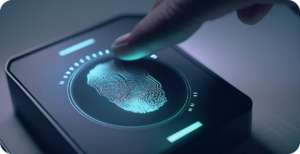Navigating the Storm: Protecting Yourself from Cybersecurity Scams During Natural Disasters
Natural disasters are not only a time of physical vulnerability but also a period where individuals are at an increased risk of cybersecurity scams. When nature strikes with its fury, not only do we face physical challenges, but there’s also a hidden threat lurking in the shadows: cyber scams. During times of natural disasters, we get overwhelmed with emotions, making us easier targets for cybercriminals. Let’s break down the situation so everyone can understand and be prepared.
Recognizing the Surge in Cybersecurity Scams
Natural disasters often lead to a significant spike in cybercrime activities. You’d think that during natural disasters, people would come together and help each other out. While many do, there are some out there who see this as an opportunity to exploit the chaos. They know people are rushing to donate to charities, or are in a state of panic, and might not be as cautious as they usually are.
These criminals capitalize on the rush to donate to relief funds or the need to secure personal properties, targeting unsuspecting victims who might let their guard down in the midst of a crisis.
Phishing Scams
These involve cybercriminals impersonating legitimate organizations such as government agencies or charities, asking for personal details or financial contributions. They’ll ask for your personal or financial details; therefore, always confirm the authenticity of the entity before sharing any sensitive information.
Identity Theft
Cybercriminals seize this opportunity to engage in identity theft. They might set up fraudulent websites, mimicking real organizations involved in disaster relief, to harvest personal data. These scammers could potentially use your identity for various fraudulent activities. The criminals will create counterfeit websites that closely resemble legitimate disaster relief sites. Once you input your personal details, they steal it and can use it to commit identity theft.
Malware Attacks
Cyber criminals employ malware attacks by embedding malicious software in seemingly harmless emails or text messages. These messages may contain links or attachments that, when opened, could compromise your system, giving them access to sensitive information and the power to manipulate your data.
How to Protect Yourself from Cyber Attacks During Natural Disasters
Understanding the gravity of these threats, it becomes paramount to enhance your knowledge and skills to counter them effectively. This is where cybersecurity training steps in as a potent tool to arm the cybersecurity workforce against such nefarious activities.
Stay Informed
In the world of cyber safety, ignorance is not bliss. Staying well-informed about the various scams can keep you ahead of the social engineering tactics used by hackers. Even something as simple as researching common scams allows you to successfully recognize them.
Educational Resources
There are plenty of educational platforms that offer insights into the world of cybersecurity. These resources provide a wealth of information, enabling you to stay current in the latest developments and emerging threats. They provide a wealth of information, helping you stay ahead of the latest cyber threats.
Community Engagement
Participate in community forums and discussion groups where individuals share their experiences and insights on recent scams and cyber threats. These platforms can serve as a gold mine of firsthand information, helping you to stay one step ahead of cybercriminals.
Real-time Alerts and Updates
Subscribe to newsletters and alerts from reputed cybersecurity organizations. These sources regularly share updates on new threats and vulnerabilities, helping you to stay ahead in the game.
Critical Thinking
Critical thinking helps you evaluate information and sources critically, enabling you to discern genuine information from fraudulent attempts by scammers. It is about cultivating a mindset that constantly questions and analyzes the information encountered in the digital space.
Scenario-Based Learning
Engage in scenario-based learning, either through online platforms or community workshops, where you can simulate real-life cyber-attack situations. This practical approach enhances your ability to think on your feet and make informed decisions that safeguard sensitive information.
Analytical Mindset
Developing an analytical mindset is crucial in understanding and dissecting complex cyber threats. Just because something looks real doesn’t mean it is. Ask questions, double-check sources, and don’t rush into sharing personal details. This involves learning to scrutinize various situations, identify potential vulnerabilities, and devise strategies to mitigate risks.
Conclusion
Natural disasters present a challenging backdrop, where the vulnerability and goodwill of individuals can, unfortunately, become fertile ground for cyber scams. Sadly, these tough times make it easier for online scammers to take advantage of people’s good intentions and vulnerabilities. Resources like Cyber Brain Academy are here to support you, providing on-demand and live training resources for continuous learning and growth.







